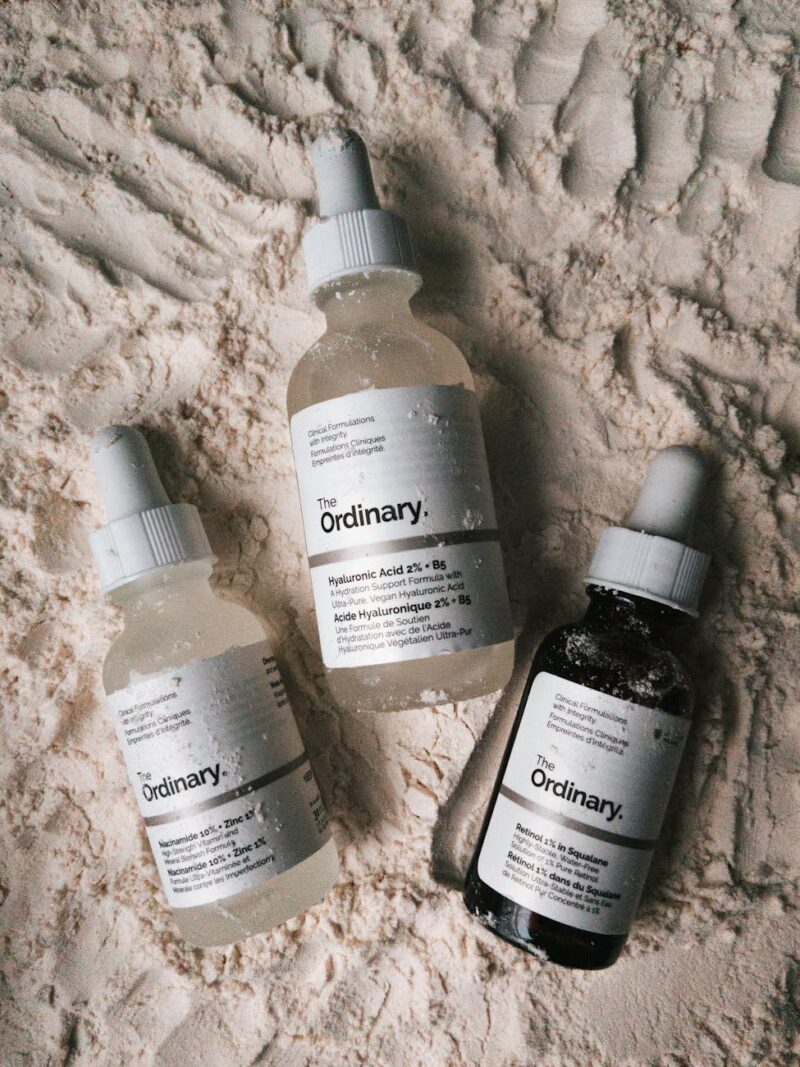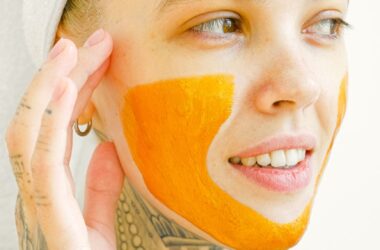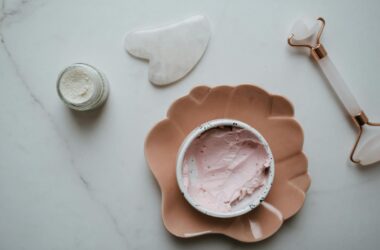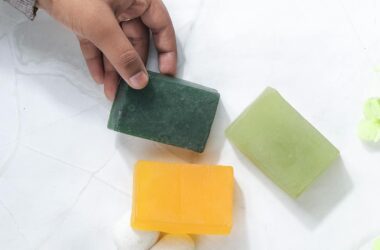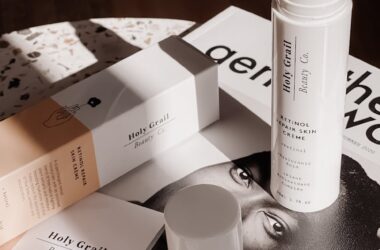Retinol is popping up everywhere and its popularity has made it difficult for you to find a detailed and reliable source of information about this skin-care powerhouse.
Let’s demystify retinol and answer the question, “Can you apply retinol during the day?”
In this blog post, we’ll discuss whether or not you can apply your retinol cream in the morning or at night.
Can You Apply Retinol During The Day
You can use retinol at any time of day, but studies show that it’s most effective when applied in the evening. It is a skin peeling agent and can cause initial irritation if used during the day.
It works best as an overnight treatment. If you do use it during the day, you need to make sure to wear high-dose sunscreen as well.
Retinol will also help prevent future damage to your skin, so make sure to always use it at night.
Using retinol products on your face during the day can be irritating and drying for the skin.
Can I Use Retinol During The Day, Even If It’s A High Percentage?
Retinol percentage is not a good indicator of whether it is safe to use during the daytime. The strongest over-the-counter retinol products are 0.1% and 0.08%.
If a product contains 0.5%, that doesn’t necessarily mean it would be too strong to use in the morning under sunscreen.
However, some people can be sensitive to any amount of retinol and may feel some mild redness after using any percentage of retinol at any time of day (many people who experience this find that it happens most often with creams containing 0.5% or 1%).
If you have sensitive skin, start with a lower percentage of retinol and only increase your strength if you don’t experience any adverse effects.
Also, keep in mind that even if you are not sensitive to retinol, irritation can still occur due to other ingredients such as fragrances or heavy essential oils.
Test the product on a small patch of skin before using it all over.
How Often Should You Use Retinol?
Because it is so strong, you should only use retinol once or twice a week at first. You should also build up your tolerance to retinol gradually.
Retinol is one of the greatest anti-aging ingredients you can use. It’s been proven to accelerate skin cell turnover and stimulate collagen production.
Retinol has also been shown to reduce wrinkles, fine lines, and age spots.
Can You Wear Makeup While I’m Using Retinol?
Yes, you can wear makeup while using retinol. Retinol is a derivative of Vitamin A and works by increasing cell turnover to “exfoliate” the skin and reduce pore size.
As a result, your skin will become more sensitive to environmental factors, including makeup.
It’s most effective in skin care products when applied directly to the skin and allowed to sit for a minimum of 30 minutes before other products are applied.
As retinol can be drying, it’s best used at night as part of your nighttime skin regimen.
Tretinoin is a prescription form of retinol designed for acne treatment and is less likely to cause irritation than lower concentrations of retinol in over-the-counter products.
To maximize the effects of retinol and prevent irritation, wash your face with a mild cleanser, wait five minutes, then apply a serum before applying your moisturizer. Wait another five minutes before applying makeup.
Depending on your skin type and sensitivity, you may not be able to wear makeup over the retinol product at all or only once your skin adjusts to it.
Ideally, you should wait until you see results from the retinol product before wearing makeup again.
Is Retinol Better Than Prescription Retin A?
In some ways yes: it’s less irritating, so it’s better for people with sensitive skin or who can’t tolerate prescription-strength retinoids.
It’s also more affordable, which makes it ideal for beginners who want to try out anti-aging skincare but don’t want to spend a lot on something that might not suit their skin type or lifestyle.
Who Should Use Retinol?
If you’re concerned about getting older, or if you’ve developed fine lines and wrinkles on your face or neck, then Retinol can help stop the aging process in its tracks.
It’s recommended that you always consult your physician or health care professional before trying any new product, especially if you’re currently using any prescription medications. If you have sensitive skin then it’s not recommended that you use Retinol.
Who should not use retinol?
Retinol products should not be used by people who have eczema, which is a chronic condition characterized by dry, itchy patches of skin.
People with eczema often suffer from other skin conditions as well, so it’s best to avoid all topical treatments while you’re having issues with your skin.
There are many different types of eczema, including atopic dermatitis, nummular eczema, seborrheic dermatitis, and stasis eczema.
If you have any type of eczema, talk to your doctor before applying any topical treatments.
What Makes Retinol So Effective?
Retinol is more than just a fancy word for Vitamin A. It’s an anti-aging powerhouse that can help with everything from wrinkles to acne.
The secret? Retinol increases cell turnover and boosts collagen production.
Retinol can also improve scarring, sun damage, and dark spots, making it especially beneficial for people of color who suffer from hyperpigmentation.
As you age, your skin cells become less plump and less hydrated which causes fine lines and wrinkles to appear.
Retinol helps the skin rebuild itself, reducing signs of aging.
Here are some benefits of using retinol:
- Reduces fine lines, wrinkles, and uneven skin tone.
- Fades acne scars.
- Treats sun-damaged skin.
- Improves rough skin texture.
- Evens out discoloration in the skin.
- Helps fade brown spots on the face or body.
- Evens skin tone for a brighter complexion.
- Helps even out freckles, age spots, and other discolorations.
- Diminishes red blemishes.
How To Know If Retinol Is Not Working For You
Retinol is a type of vitamin A that can be used to treat acne, as well as wrinkles and other signs of aging.
Retinol is considered a prescription drug in the United States, so it cannot be bought over the counter. Retinol creams may be available from your doctor or at a local pharmacy.
Treatment with retinol involves a slow process.
It can take several months for the effects to become apparent, and even longer for them to become permanent.
Here are ways how to know if retinol is not working for you:
1. Your skin becomes red, dry, and irritated, especially around the eyes and nose.
2. You develop flaky, rough patches of skin on your face or body.
3. You have irregular pigmentation problems or dark spots on your face or body.
4. Your skin starts to peel off; sometimes this process can be very painful and prolonged.
5. You develop severe acne or pimples all over your face and body; sometimes they are present in large numbers (hundreds).
6. You develop rosacea – a red rash on your cheeks, chin, and forehead; it is often accompanied by whiteheads, blackheads, and pimples around the nose.
How to Safely Use Retinol During The Day
Retinol is a powerful anti-aging ingredient that comes in many forms — pills, creams, gels, and more. It really works to combat wrinkles, acne, and other signs of aging.
I’m a big fan of retinol products and it is one of my top recommended anti-aging ingredients.
Yes, retinol can be harsh if used incorrectly so here are the tips on how to safely use retinol during the day:
1. Use AM and PM retinol products as directed by your doctor or dermatologist.
2. Wash your face thoroughly with a mild cleanser before each application.
3. Use retinol products that have been tested by your dermatologist or are recommended by a licensed esthetician.
4. Apply a small amount to clean skin at night after cleansing the face and neck area for maximum absorption (retinoids work best on clean skin).
5. Take time to let the product absorb into the skin before applying moisturizer or another product containing retinol.
6. Let the product dry completely before going to bed and wear SPF every day even if you’re indoors all day long! 7. Use sunscreen with an SPF of 30 or higher to protect from damaging UV rays.
Final Thoughts
Before you decide to use retinol during the day, it may be smart to chat with your dermatologist first.
Any allergic reactions will obviously not be desirable and could potentially ruin the look of your skin.
Also, watch out for any changes in your skin that appear throughout the usage of a retinol product.
If you notice any redness, peeling, or flaking, then it’s important to discontinue use immediately.



